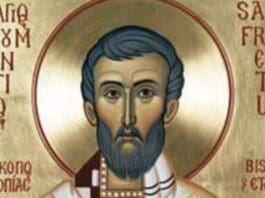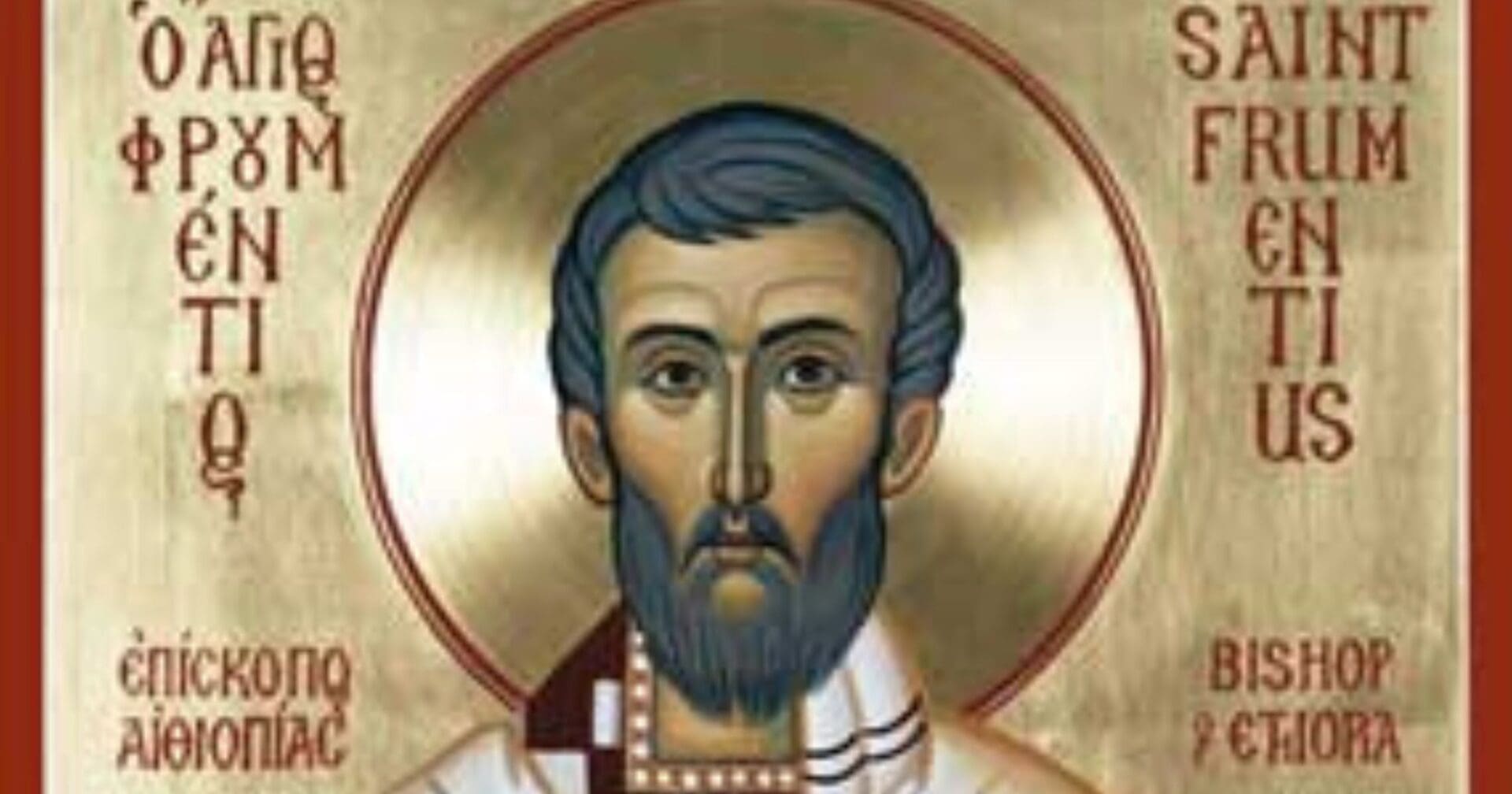
Titled “Abuna” or “the father” in Ethiopian history, Saint Frumentius holds a monumental place in the Christian heritage of the country, having been sent there by St. Athanasius himself. Originating from Tyre in Lebanon, Frumentius’s life took a dramatic turn during his childhood.
As recounted by a 4th-century historian, who relied on the account of St. Frumentius’ brother, St. Aedesius, both boys embarked on a sea voyage to Ethiopia with their uncle Metropius. Unfortunately, their ship was attacked when it anchored at a Red Sea port, resulting in the massacre of the entire crew, spare for Frumentius and Aedesius, who were then enslaved and taken to the King of Aksum.
Their fate took a turn for the better at the royal court in Aksum, where they quickly rose to positions of influence. St. Aedesius became the royal cupbearer, while St. Frumentius served as a secretary. It was in this capacity that they began to spread the teachings of Christianity.
Upon the succession of Abreha and Asbeha to the Ethiopian throne, St. Frumentius embarked on a journey to Alexandria in Egypt. His mission was to request that St. Athanasius appoint a missionary to Ethiopia. Instead, he himself was consecrated as a bishop and returned to Aksum, where he converted numerous individuals to Christianity. Today, Frumentius and St. Aedesius are venerated as the apostles of Ethiopia, having played a crucial role in the establishment of Christianity in the region.
Photo credit: Public Domain via Wikimedia Commons
The post Saint Frumentius appeared first on uCatholic.
Daily Reading
Memorial of Saints Basil the Great and Gregory Nazianzen, Bishops and Doctors of the Church
Readings for the Memorial of Saints Basil the Great and Gregory Nazianzen, Bishops and Doctors of the Church Reading 1 1 John 2:22-28 Beloved: Who is the liar? Whoever denies…
Daily Meditation
A Voice in Today’s WildernessUna voz en la jungla de hoy día
Click here for daily readings Today’s Gospel passage is especially relevant as we begin a new year with resolutions and hope. In this reading we hear John’s declaration echoing the…




